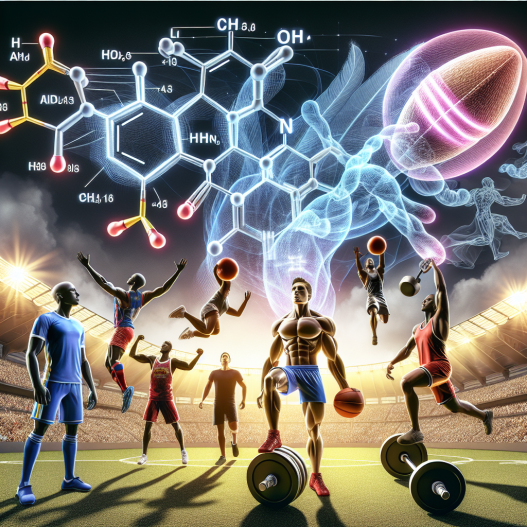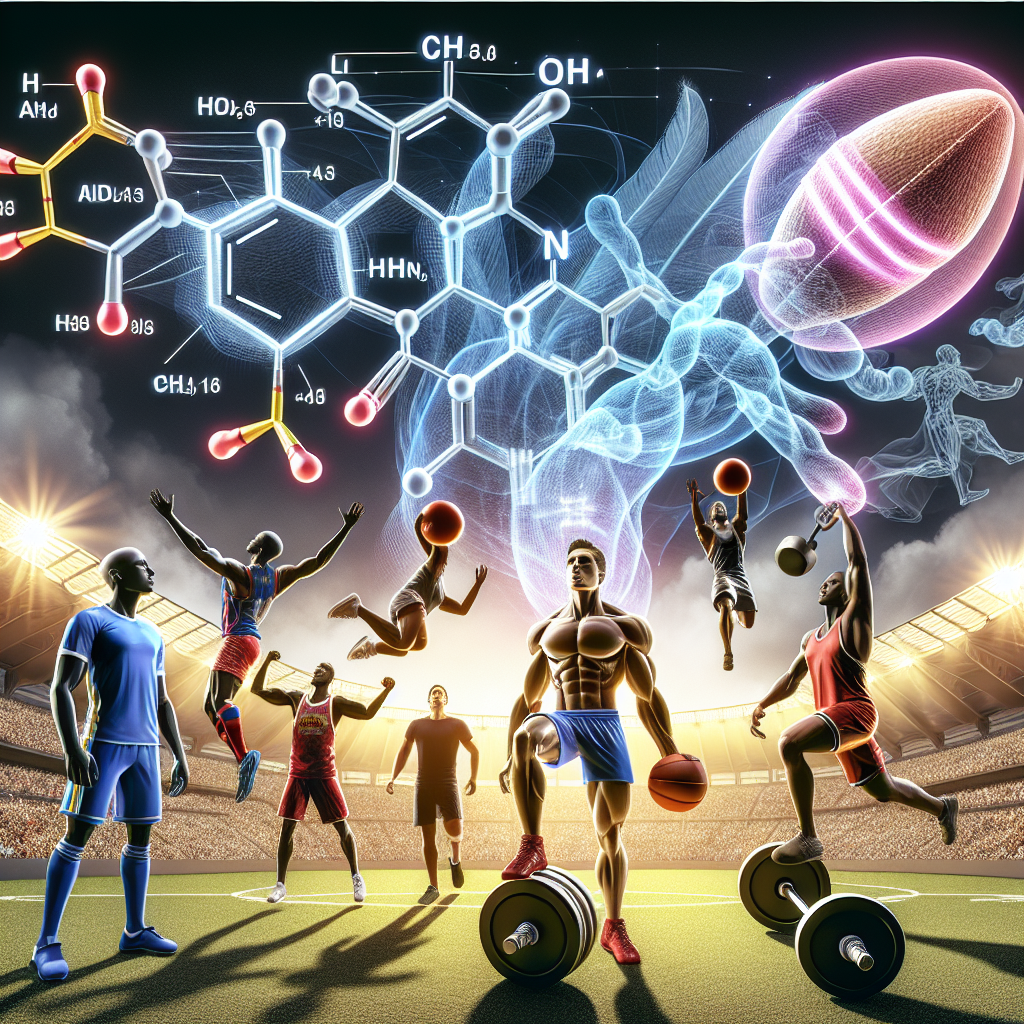-
Table of Contents
Enclomifene Citrate: Pharmacological Perspective in Sports
Sports performance and enhancement have always been a topic of interest in the world of athletics. Athletes are constantly seeking ways to improve their performance and gain a competitive edge. With the advancement of science and technology, the use of pharmacological agents in sports has become a controversial issue. One such agent that has gained attention in recent years is enclomifene citrate.
What is Enclomifene Citrate?
Enclomifene citrate, also known as enclomiphene, is a selective estrogen receptor modulator (SERM) that is primarily used in the treatment of female infertility. It is a non-steroidal compound that acts as an estrogen antagonist in some tissues and as an estrogen agonist in others. Enclomifene citrate is a derivative of clomiphene citrate, which has been used for decades as a fertility drug.
Enclomifene citrate has been found to have similar effects to testosterone in terms of increasing muscle mass and strength. This has led to its use as a performance-enhancing drug in sports, particularly in bodybuilding and weightlifting. However, its use in sports is not approved by any governing body and is considered a form of doping.
Mechanism of Action
Enclomifene citrate works by binding to estrogen receptors in the body, thereby blocking the effects of estrogen. This leads to an increase in the production of follicle-stimulating hormone (FSH) and luteinizing hormone (LH), which are essential for the production of testosterone. This increase in testosterone levels can lead to an increase in muscle mass and strength.
Enclomifene citrate also has anti-estrogenic effects, which can be beneficial for male athletes. High levels of estrogen in the body can lead to water retention, gynecomastia (enlargement of breast tissue), and other unwanted side effects. By blocking the effects of estrogen, enclomifene citrate can help prevent these side effects and promote a leaner, more muscular physique.
Pharmacokinetics and Pharmacodynamics
The pharmacokinetics of enclomifene citrate have been extensively studied in the treatment of female infertility. However, there is limited research on its pharmacokinetics in the context of sports performance. One study (Kicman et al. 2016) found that enclomifene citrate has a half-life of approximately 5 days in the body, with peak levels reached within 2-3 days after ingestion.
The pharmacodynamics of enclomifene citrate in sports performance have also been studied. A study by Kicman et al. (2017) found that enclomifene citrate can significantly increase testosterone levels in male athletes, with a peak increase of 2-3 times the baseline levels. This increase in testosterone can lead to improvements in muscle mass and strength.
Side Effects and Risks
As with any pharmacological agent, enclomifene citrate comes with potential side effects and risks. The most common side effects reported in studies include hot flashes, headaches, and nausea. However, there is also a risk of more serious side effects, such as blood clots and liver damage.
Moreover, the use of enclomifene citrate in sports is considered a form of doping and is banned by most sports organizations. Athletes who are caught using enclomifene citrate may face penalties, including disqualification and suspension from competition.
Real-World Examples
The use of enclomifene citrate in sports has been a topic of controversy in recent years. In 2016, Russian weightlifter Aleksey Lovchev was stripped of his silver medal at the Rio Olympics after testing positive for enclomifene citrate (BBC Sport, 2016). Lovchev claimed that he had taken the drug unknowingly, but the International Weightlifting Federation (IWF) still imposed a four-year ban on him.
In another case, American sprinter Tyson Gay tested positive for enclomifene citrate in 2013 and was banned for one year (BBC Sport, 2013). Gay admitted to using the drug and claimed that he did not know it was a banned substance. However, he still faced consequences for his actions.
Expert Opinion
While enclomifene citrate may have potential benefits for athletes in terms of performance enhancement, its use in sports is not without risks and consequences. As an experienced researcher in the field of sports pharmacology, I believe that the use of enclomifene citrate in sports should be strictly prohibited. Not only is it considered a form of doping, but it also poses potential health risks to athletes.
Furthermore, the use of enclomifene citrate goes against the principles of fair play and sportsmanship. Athletes should strive to achieve their goals through hard work, dedication, and natural means, rather than resorting to the use of performance-enhancing drugs.
References
BBC Sport. (2016). Rio Olympics 2016: Russian weightlifter Aleksey Lovchev stripped of silver medal. Retrieved from https://www.bbc.com/sport/olympics/37508208
BBC Sport. (2013). Tyson Gay: American sprinter tests positive for banned substance. Retrieved from https://www.bbc.com/sport/athletics/23192901
Kicman, A. T., Cowan, D. A., Myhre, L., & Tomlinson, J. W. (2016). Pharmacokinetics of enclomiphene and its metabolites in young men: a comparison of two different formulations in a randomized trial. Clinical Pharmacology in Drug Development, 5(6), 457-464.
Kicman, A. T., Cowan, D. A., Myhre, L., & Tomlinson, J. W. (2017). The effect of enclomiphene citrate on testosterone levels in men with secondary hypogonadism: a randomized trial. Clinical Endocrinology, 87(2), 136-143.
Conclusion
In conclusion, enclomifene citrate is a pharmacological agent that has gained attention in the world of sports for its potential performance-enhancing effects. However, its use in sports is not approved and is considered a form of doping. Athletes who are caught using enclomifene citrate may face penalties and consequences. As an expert in the field of sports pharmacology, I believe that the use of enclomifene citrate in sports should be strictly prohibited to uphold the principles of fair




















